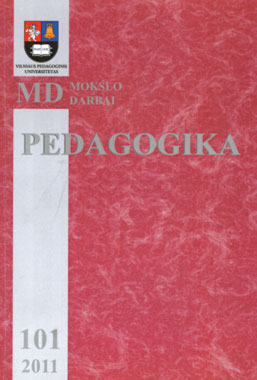Besimokančios organizacijos esmė ir nauda: andragogo požiūris
A learning organization in perspective of andragogist
Author(s): Kęstutis TrakšelysSubject(s): Education
Published by: Vytauto Didžiojo Universitetas
Keywords: learning organization; andragogist, andragogy; socialization and constant learning.
Summary/Abstract: The article analyzes the current trend of modern organization-continuous learning. This society, many call the knowledge society, because modern technology is changing the nature and relationships, development of society is changing human relationships, personal role in society, the interests and provisions. Thus, personal training phenomenon is not exhaustive-it lasts a lifetime. Training over a lifetime reflects the crucial feature of modern society. Lifelong learning includes not only the individual but also the organization as a single group of individuals approaching the objective. Lifelong learning is not just self-development needs, but also the economic circumstances dictated creature. However, acceleration of global business, its staff or its knowledge, skills and qualifications to improve in order to keep his job, and individuals who wish to successfully stay on the market of businesses and organizations. The article discusses in detail the concept of a learning organization, different scientists approach to adult learning, issue of learning the form and methods. The paper analyzes the characteristics of a learning organization and how the organization is different from stopped-learning organizations. Learning organizations discussed the advantages of the free market against other organizations. Analyzing how the organization and the employee benefit from learning how it affects the organization’s efficiency, quality of work. Analyzed learning environment, as well as discuss and adult education and training characteristics and methods. Presents an empirical study, which surveyed 60 respondents. It examines the attitude of respondents to continuing training, what forms of learning and useful choice. Also it is delivered to respondent’s approach to learning opportunities and the employers’ approach to training for staff.
Journal: Pedagogika
- Issue Year: 2011
- Issue No: 101
- Page Range: 98-106
- Page Count: 9
- Language: Lithuanian

